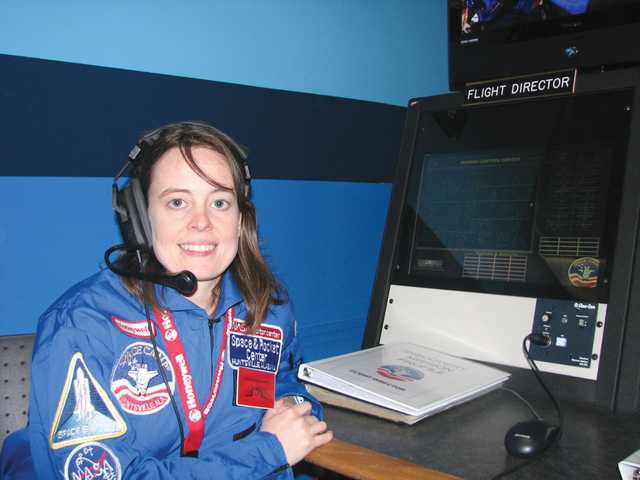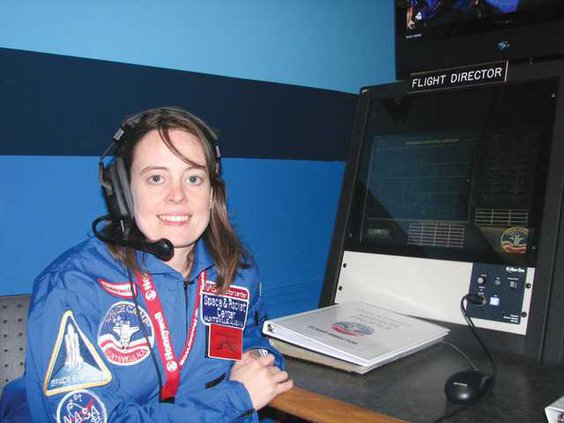Janelle Wilson developed a love for outer space at a young age, so it’s no surprise she was thrilled to attend a space academy program last month at the U.S. Space & Rocket Center in Huntsville, Ala. One of two Georgia teachers chosen to attend, Wilson, a Hoschton resident, joined 249 other educators from 27 countries and 47 states for a week focused on space science and exploration. Each received a scholarship to attend the five-day program, which featured team-building activities ranging from scenario-based space missions to launching model rockets. Teachers also got a chance to take a spin in flight simulators, such as the multi-axis trainer, a simulator that demonstrates an aircraft or spacecraft spinning out of control. The space academy program began in 2004 when the U.S. Space & Rocket Center and Honeywell International, a manufacturing and technology company, agreed to found the Honeywell Educators @ Space Academy program. Each year, a select number of middle school math and science teachers are invited to participate. The program aims to foster more innovative teaching techniques through a variety of classroom, laboratory and real-life astronaut training, all linked in some way to U.S. science and math teaching standards. Born in Florida, Wilson, 34, remembers visiting the Kennedy Space Center often; her first glimpse of the iconic facility occurred when she was just a year old. "I think that definitely had a big impact on me," she explained. A sixth-grade earth science teacher at Lanier Middle School in Sugar Hill, Wilson said she is excited to share the lessons learned last month with her new class. One such lesson involves finding exercises that foster more "playfulness" in the classroom. Learning can happen even if it’s fun, she explained. Wilson and her 17-member team, dubbed Team Columbus, participated in activities that were all "very playful and a lot of fun." Borrowing from this, she wants her students to know that "you can play around and still learn a lot." Finding methods to transform abstract classroom topics into applicable, real-life scenarios also is a technique she wants to embrace more often. One opportunity to do this lies within the Mars Education Program, a program put together by NASA and Arizona State University that allows students to perform scientific research on Mars by identifying the planet’s geographical features using satellite images. The program helps educate students about their own planet, said Wilson, because they have to understand Earth’s geological features to understand Mars’ characteristics. Implementing more hands-on lessons such as this, she explained, is a means to sparking more interest in math and science, two disciplines students nationwide often struggle to grasp. "Memorizing facts is not helping them grow," she said. "They need to be able to think critically and problem solve and speak up for themselves." Wilson will not soon forget her experience at the academy and even scored the chance to share the adventure with her students. In addition to receiving a medal, Wilson was given an envelope, the contents of which will make any rising sixth-grader want her as a teacher when school reconvenes. Wilson now holds in her hand the ability to choose one student to attend space camp in Alabama next summer. Though it will be a hard choice, Wilson said she is happy someone else will get to participate in the program and hopes that they, too, fall in love with the science that has held a special place in her heart practically her entire life.
Space camp rockets teacher's enthusiasm for science
Hoschton resident will put hands-on lessons into Lanier Middle classroom

